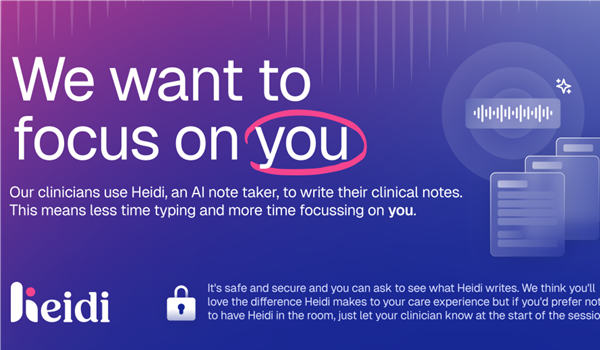Patient Record
Sharing Your Medical Record
Increasingly, patient medical data is shared e.g. between GP surgeries and District Nursing, in order to give clinicians access to the most up to date information when attending patients.
The systems we operate require that any sharing of medical information is consented to by patients beforehand. Patients must consent to sharing of the data held by a health provider out to other health providers and must also consent to which of the other providers can access their data.
e.g. it may be necessary to share data held in GP practices with district nurses but the local podiatry department would not need to see it to undertake their work. In this case, patients would allow the surgery to share their data, they would allow the district nurses to access it but they would not allow access by the podiatry department. In this way access to patient data is under patients' control and can be shared on a 'need to know' basis.
Emergency Care Summary

We Use AI Medical Scribes
At Foxhill Medical centre , we are committed to providing you with the highest standard of care. To help us achieve this, we use Heidi AI Scribe, a secure and advanced tool that assists our clinicians during consultations by documenting the conversation. This allows our clinicians to focus more on you and less on paperwork.
What is Heidi AI Scribe?
Heidi AI Scribe is a secure, artificial intelligence (AI) tool that listens to the consultation and creates accurate, summarised notes for your medical record. It is designed to support clinicians by saving time and ensuring your records are up to date. Clinicians review and approve the notes captured by Heidi AI Scribe before they are added to your patient record.
How Does This Benefit You?
- Improved Interaction: By automating notetaking, Heidi AI Scribe allows clinicians to focus solely on you during the consultation, ensuring you feel heard and understood.
- Accurate Documentation: The tool helps create precise, clear, and detailed medical notes for your patient record, improving the quality of your care.
- Time Efficiency: Heidi AI Scribe streamlines administrative tasks, giving clinicians more time to spend with you and address your concerns.
Patient Consent and Your Privacy
Your privacy is our top priority. Heidi AI Scribe is designed to comply with strict data protection regulations, including GDPR. All data is processed securely and confidentially.
- You Can Opt Out: If you prefer not to use Heidi AI Scribe during your consultation, simply let us know. Your care will not be affected in any way, and your clinician will take notes manually as usual.
- No Pressure: The decision to use Heidi AI Scribe is entirely yours, and we respect your choice.
How to Opt Out
If you would like to opt out of using Heidi AI Scribe, please inform our reception team when booking your appointment or speak to your clinician at the start of your consultation.
How Does it work?
Data Privacy FAQs
Page created: 26 May 2020

